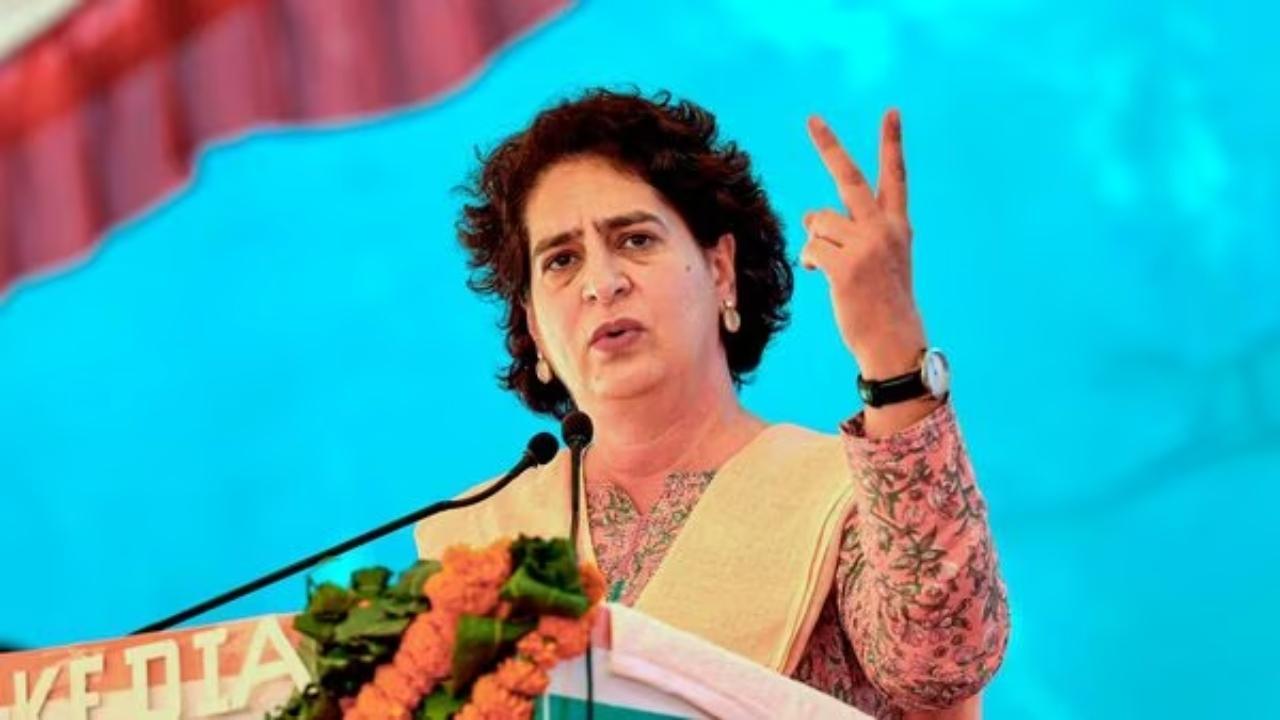


Congress MP Priyanka Gandhi Vadra has taken to social media to slam the Modi government for its economic policies. She quoted first prime minister Pandit Jawaharlal Nehru to highlight the impact of those policies on the country's citizens. She also referred to data from the RBI and the World Inequality Database to underscore the economic distress caused by the government's actions. Read on to find out more about her criticism and the reactions it has sparked.
Congress MP Priyanka Gandhi Vadra Slams Modi Government's Economic Policies
Background
Congress MP Priyanka Gandhi Vadra has recently criticized the Modi government's economic policies, arguing that they have exacerbated economic inequality and caused hardship for ordinary citizens. Her criticism comes amid growing concerns about the state of the Indian economy, with unemployment rising and inflation at a peak.
Vadra's Criticism
In a series of tweets, Vadra quoted former Prime Minister Pandit Jawaharlal Nehru to highlight the impact of the Modi government's policies on the country's citizens. She also referred to data from the Reserve Bank of India (RBI) and the World Inequality Database to underscore the economic distress caused by the government's actions.
Vadra specifically criticized the government for its handling of the COVID-19 pandemic, which she said had disproportionately affected the poor and marginalized communities. She also pointed to the government's decision to implement demonetization in 2016, which she said had caused widespread economic disruption and job losses.
Government's Response
The Modi government has not yet responded to Vadra's criticism. However, the government has previously defended its economic policies, arguing that they are necessary to stimulate growth and create jobs.
Reactions
Vadra's criticism has sparked mixed reactions from various stakeholders. Some have supported her views, arguing that the government's policies have exacerbated inequality and caused economic hardship. Others have criticized her for being too critical of the government and for not offering any alternative solutions.
Top 5 FAQs
1. What are the main points of Priyanka Gandhi Vadra's criticism of the Modi government's economic policies?
Vadra's main points are that the government's policies have exacerbated economic inequality, caused hardship for ordinary citizens, and disproportionately affected the poor and marginalized communities.
2. What data did Vadra use to support her criticism?
Vadra referred to data from the Reserve Bank of India (RBI) and the World Inequality Database to underscore the economic distress caused by the government's actions.
3. How has the Modi government responded to Vadra's criticism?
The Modi government has not yet responded to Vadra's criticism.
4. What are some of the reactions to Vadra's criticism?
Reactions to Vadra's criticism have been mixed, with some supporting her views and others criticizing her for being too critical of the government and for not offering any alternative solutions.
5. What are some past events related to this topic?
Past events related to this topic include the implementation of demonetization in 2016 and the government's handling of the COVID-19 pandemic.

The passing of former Union Home Minister and Congress heavyweight Shivraj Patil has left a void in the political landscape of Maharashtra. His tenure in the Ministry of Home Affairs was marked by several contentious moments, including controversies over his response to terror attacks and criticism over his attire during a national security crisis. His resignation after the 26/11 attacks in Mumbai had a lasting impact on his reputation, as leaked US diplomatic cables described him as "spectacularly inept". Despite this, Patil is being fondly remembered by Congress leaders for his dedication to public service and contributions to the nation's democratic institutions.

Delhi Police Commissioner Rakesh Asthana was honoured during the 'Khaki Ke Sang Shiksha Aur Umang - YUVA Mashaal' programme at Begumpur, Delhi. The event, hosted by the Rohini District, aimed to recognize the efforts of Grameen Police Sahyog Samiti members and social workers in bringing positive changes to the society. Asthana was presented with a turban by elderly persons and also honoured renowned Olympic Champion wrestler Ravi Dahiya. The programme also aimed to spread awareness about the community outreach initiatives of Delhi Police among residents.

The Lok Sabha erupted into chaos as discussions on electoral reforms turned into a heated confrontation between opposition leader Rahul Gandhi and Home Minister Amit Shah. Gandhi challenged Shah to a debate on 'vote theft' allegations, while Congress MP Gaurav Gogoi expressed dissatisfaction with Shah's response to the opposition's concerns. As the opposition staged a walkout, BJP MP Tejasvi Surya criticized the move and praised Shah's speech for effectively countering their propaganda. Prime Minister Narendra Modi also commended Shah for exposing the lies of the opposition.

Former JNU student and activist Umar Khalid, who is an accused in the Delhi riots conspiracy case, has been granted interim bail for 14 days to attend his sister's wedding on December 27. This comes after multiple failed attempts to secure bail, with the court allowing temporary relief for family reasons. Khalid has been instructed to stay away from social media and can only meet family members, relatives, and close friends during the bail period.

The Maharashtra Assembly was in chaos as opposition parties raised concerns over the recent police encounter of government consultant Rohit Arya. The lawmakers claimed that the encounter was wrongful and questioned why Arya was not just shot in the leg instead. It was revealed that Arya had worked on several government projects but had not been paid for his services, leading to the extreme step. The state government has assured an ongoing inquiry into the matter.

During a lively Question Hour in the Lok Sabha, BJP MP Anurag Thakur accused a TMC MP of smoking an e-cigarette inside the House. Speaker Om Birla promised action if a written complaint is filed, while pointing out that the use of e-cigarettes is not allowed in the Lok Sabha. The incident highlights the ongoing debate on the ban on e-cigarettes in India.

A heated commotion erupted in Parliament during Question Hour on Thursday when BJP MP Anurag Thakur accused a Trinamool Congress member of using an e-cigarette in the House, a violation of both parliamentary conduct and national law. Speaker Om Birla responded by sternly stating that no such permission existed and urged Thakur to file a complaint if he had evidence to support his allegation. Amidst the back-and-forth, Thakur questioned if e-cigarettes had been allowed in the Sadan, given their nationwide ban.

The State Election Commission has pushed back municipal elections in multiple districts of Maharashtra to December 20, causing a stir among candidates and political parties as the previous polling date was looming. The postponement is due to delays in resolving appeals filed by rejected candidates, leading to procedural errors according to the Maharashtra Municipal Election Rules. The new schedule now includes deadlines for symbol allocation, withdrawal of nominations, and voting. This move has major consequences for campaigns and may change the electoral landscape in the affected constituencies.

A mini truck carrying 17 Border Security Force personnel overturned in Kanker district, Chhattisgarh, leaving them injured. The jawans were on their way to Antagarh railway station for a leave when the accident occurred. Four of them were referred to Raipur for further treatment. The state government has declared a 'dry day' on January 22 for Ram Temple inauguration, while a 16-year-old was held hostage and raped in another incident in the state.

Indian Prime Minister Shri Narendra Modi pays tribute to Shri Pranab Mukherjee, a former President and veteran politician, on his birth anniversary. The PM praises Mukherjee's exceptional leadership and contributions to India's development, highlighting his intellect and unwavering dedication to public service. The post also mentions the privilege of the PM's personal interactions with Mukherjee and the valuable lessons learned from him.